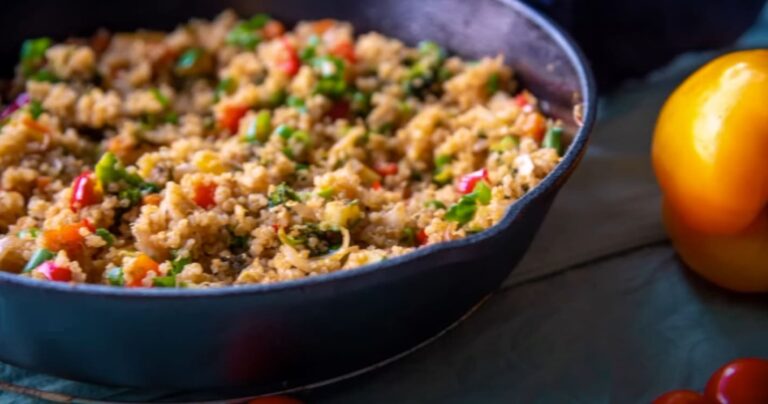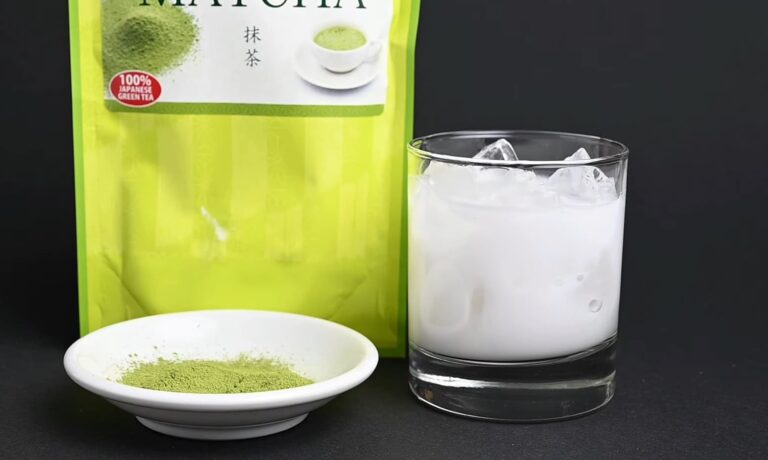Can You Mix Olive Oil and Vegetable Oil?
Olive oil and vegetable oil are two of the most popular cooking oils available. They can be used for various purposes, including roasting, baking, and sautéing. While the two oils may seem similar, significant differences should be considered when deciding which one to use. So, can you mix olive oil and vegetable oil together?
The short answer is yes, and there’s more to it than that. Olive oil and vegetable oil can be mixed for various cooking purposes, whether you’re baking, grilling, or sautéing.
In most cases, combining the two types of oils can help enhance the flavor of your dishes while bringing out the best qualities of both ingredients. Olive oil adds a robust flavor to foods, while vegetable oil provides a neutral base that allows other flavors to come through. Mixed together, they make an ideal combination for many recipes. For example, if you’re making a marinade or vinaigrette dressing, try adding equal parts olive and vegetable oils for maximum flavor impact.
How to Mix Olive Oil and Vegetable Oil?
Mixing olive and vegetable oil is a great way to create a unique and flavorful cooking experience. Combining the two oils makes it possible to get the best of both worlds – the rich flavor of olive oil combined with the neutral taste of vegetable oil for deep-frying or sautéing. And there’s no need to sacrifice health, either; mixing one-fourth of olive oil with any neutral vegetable oil is an easy way to boost nutrition while enjoying delicious, well-rounded flavors.

To start mixing these two oils, measure one-fourth cup of olive oil for every three-fourths of vegetable oil you use. Once you have your ingredients measured out, pour each into a bowl and mix them thoroughly until fully blended.
Mixing Olive Oil and Vegetable Oil for Frying
When it comes to frying food, many different types of oil can be used. One popular combination is mixing olive oil and vegetable oil. This type of mix offers a variety of benefits due to the diverse properties found in both oils.
Olive oil has a high smoke point which means it can be heated to high temperatures without burning or smoking, making it an ideal choice when deep-frying items such as potatoes or chicken wings. Vegetable oil also has a high smoke point but is lower in saturated fats and calories than olive oil, making it the healthier option for those looking for a lighter dish. By combining the two oils, you get the best of both worlds: the flavor from the olive oil and the health benefits from the vegetable oil.
Mixing Olive Oil and Vegetable Oil for Baking
Many home cooks wonder if mixing different types of oil when baking is acceptable. The answer is yes, and it can be beneficial in some instances. For example, mixing olive oil and vegetable oil is a great way to combine flavors while also getting the most out of your cooking oils.

Olive oil has a strong flavor that can overpower other ingredients, so mixing it with vegetable oil helps to balance its intensity. Vegetable oil is much less flavorful than olive oil, which means combining both will help create an overall pleasant taste without being too overwhelming or underwhelming. Furthermore, blending these two oils will improve your baked goods’ consistency since they have different properties when heated.
Mixing Olive Oil and Vegetable Oil for Brownies
Mixing olive and vegetable oil for brownies is the perfect way to make your baking experience enjoyable. The two oils are a great combination that will give you excellent flavor and texture for your gooey brownies. Not only do they work together to create a fantastic treat, but they also provide multiple health benefits as well.
Olive oil brings an earthy, nutty flavor to any dish it’s added to, and when combined with vegetable oil, it gives brownies a unique taste that can’t be beaten! Using olive oil in baking means you get all of its heart-healthy benefits, too; research has shown that people who consume a large amount of olive oil have improved cardiovascular health due to its monounsaturated fat content.
Can You Substitute Vegetable Oil for Olive Oil?
Vegetable oil is a common ingredient in many recipes, but sometimes people want to switch it out for something healthier. Olive oil is often the first substitute that comes to mind, as it’s considered one of the healthiest oils available. But can you use olive oil as a substitute for vegetable oil?
The short answer is yes – olive oil can be used instead of vegetable oil when cooking or baking. However, there are some essential things to consider before making the swap. Olive oil has a lower smoking point than vegetable oils, so it’s best used at lower temperatures and shorter cook times. It also has an intense flavor, so if you don’t want strong hints of olive in your dish, you may need to adjust the recipe accordingly.
Olive Oil vs. Vegetable Oil: Which is Better?
Whether olive oil or vegetable oil is better depends on a number of factors, including personal taste, nutritional value, and the intended use of the oil.
Olive oil is known for its rich, distinct flavor and health benefits, including high levels of healthy monounsaturated fats and antioxidants. These properties make olive oil a popular choice for salad dressings, dips, and marinades, as well as for sautéing and roasting.

On the other hand, vegetable oil is valued for its neutral flavor, high smoke point, and versatility. As a result, it is often used in deep-frying and baking, as well as in stir-frying and sautéing. Vegetable oil is also more affordable than olive oil, making it a popular choice for large-scale cooking operations.
In terms of health, both olive oil and vegetable oil contain healthy fats, but the type of fat differs. Olive oil is rich in monounsaturated fats, which are associated with several health benefits, including a reduced risk of heart disease. Vegetable oil, on the other hand, is often a blend of oils and may contain higher levels of polyunsaturated fats, which have been linked to a reduced risk of heart disease but can also be prone to oxidation and rancidity.
Both olive oil and vegetable oil have unique properties and advantages, and the better option will depend on personal taste and the intended use of the oil. For example, olive oil is an excellent choice for those looking for a rich, flavorful oil with health benefits. In contrast, those seeking a neutral-tasting, versatile oil may prefer vegetable oil. Ultimately, it is up to each individual to decide which oil works best for them and their specific needs.
Useful Tips When Mixing Olive Oil and Vegetable Oil
Each type of oil has its unique flavor and characteristics that can help improve the taste and texture of food when combined properly. To help you get the most out of these two versatile ingredients, here are some useful tips when mixing olive oil and vegetable oil.
- Know the smoke points of each oil: Olive oil has a lower smoke point than vegetable oil, so it’s important to understand the smoke point of each oil when mixing them. The smoke point is the temperature at which an oil begins to break down and produce smoke. To ensure a successful mix, choose a high-quality olive oil with a high smoke point and use it in combination with vegetable oil with a high smoke point.
- Consider the flavor: Olive oil has a strong, distinctive flavor, while vegetable oil is neutral. If you’re using the mix for frying, baking, or other high-heat applications, consider using less olive oil to preserve the flavor. If you want to incorporate the flavor of olive oil into a dish, consider using it as a finishing oil or drizzling it over a dish after cooking.
- Control the proportion: Mixing olive and vegetable oil in equal parts may not always yield the desired result. To achieve the desired flavor, texture, and smoke point, consider adjusting the proportion of each oil in the mix. A common ratio is 1 part vegetable oil to 4 part olive oil.
- Store properly: Store the mixed oil in an airtight container and in a cool, dark place to extend its shelf life. Avoid storing mixed oil in direct sunlight or near heat sources, as this can cause the oil to degrade more quickly.
- Use fresh oil: Always use high-quality oil when mixing olive oil and vegetable oil. Using old or rancid oil can affect the mix’s taste, texture, and overall quality and pose a health risk.
By following these tips, you can ensure that your mix of olive oil and vegetable oil is successful, flavorful, and safe for cooking and baking.
FAQ
Can you fry fish in olive oil and vegetable oil?
Yes, you can fry fish in both olive oil and vegetable oil. The smoke point of cooking oil is the temperature at which it starts to break down and burn, giving off smoke. Olive oil has a lower smoke point than vegetable oil, so if you are frying with olive oil, you should keep the heat lower than when using vegetable oil.
When frying with either type of oil, preheat the pan until it’s hot before adding the fish. This will help ensure that your fish cooks evenly and doesn’t stick to the pan. Be sure to use enough oil to cover the bottom of the pan but not too much so that it pools around the fish.
Finally, monitor your cooking temperature and adjust as needed to keep your food from burning or sticking to the pan. This is especially important if you’re using olive oil for frying since its lower smoke point can burn more easily than other oils.
Is it better to fry with olive oil or vegetable oil?
It depends on what you are looking for in cooking oil. Olive oil has a lower smoke point than vegetable oil, so it is better suited for low-heat cooking such as sautéing and stir-frying. It also has a distinct flavor that can add to the taste of dishes. However, because of its low smoke point, it is unsuitable for deep frying.
Vegetable oil has a higher smoke point than olive oil and is better suited for deep frying. It won’t burn or break down at high temperatures like olive oil will. The flavor is more neutral compared to olive oil, which can be beneficial if you don’t want your food to have an overly strong taste of olive oil.
It depends on what dish you are making and how you plan to cook it when deciding between olive and vegetable oils.
Is vegetable oil the same as olive oil?
No, vegetable oil and olive oil are not the same. Vegetable oil is a generic term for any oil derived from plants, such as canola, corn, soybean, sunflower, or safflower. On the other hand, olive oil comes solely from olives and is considered a healthier alternative due to its higher content of monounsaturated fats. It also has a more distinct flavor, making it ideal for salads and other dishes. While both oils have their uses in cooking, they cannot be used interchangeably as they have different properties.
What is the healthiest oil to cook with?
Olive oil is widely considered one of the healthiest oils to cook. It contains a high amount of monounsaturated fatty acids, which can help reduce bad cholesterol levels and lower the risk of heart disease. Olive oil also has anti-inflammatory properties and is rich in antioxidants, which can help protect against chronic diseases. Additionally, olive oil has a high smoke point, making it suitable for cooking at higher temperatures without breaking down into harmful compounds.
Another healthy option is avocado oil. Like olive oil, it is high in monounsaturated fats and has a high smoke point. Avocado oil also contains vitamins A, D, and E and potassium, making it a nutrient-dense choice for cooking.
Coconut oil is another popular option for cooking due to its high saturated fat content. However, research suggests that coconut oil may not be as beneficial for heart health as other oils like olive or avocado oil.
Related Video: Olive Oil vs. Vegetable Oil – Which One Should You Cook With?
Final Thoughts
Mixing olive oil and vegetable oil can offer a balance of flavor, health benefits, and cost savings. However, it is important to use the right ratio of oils and consider the cooking type needed when deciding on a combination of oils. Mixing olive and vegetable oil is a great option if you want to get the best of both worlds. In addition, experimenting with different ratios can help you find the perfect blend for your needs.







